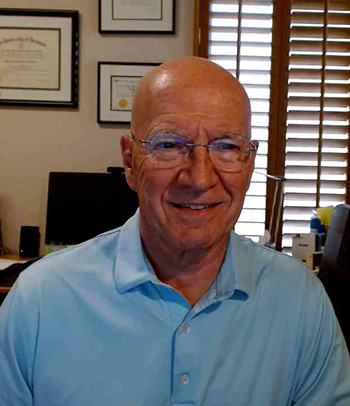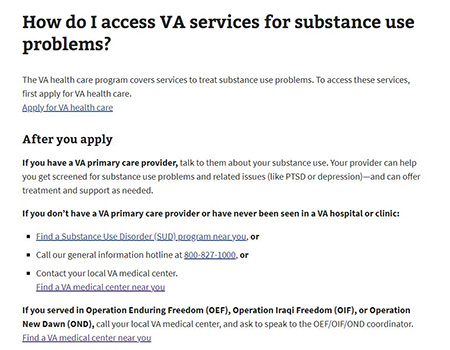September is Recovery Month – a chance for each of us to celebrate the gains made by those in recovery from substance use, learn more about effective treatment options and find ways to support those who are still struggling with addiction.
“We need to recognize that mental health and substance use disorders function in a similar manner to other chronic medical conditions. That is, they’re not due to some moral or character failure, or insufficient willpower.” – Dr. Blake Chaffee
More than 20 million Americans are recovering from substance use disorder and millions more are still battling it. Included in these numbers are people of all races and income levels, people we know and love – our family members, neighbors, co-workers, friends and community members.
To help us take a closer look, we asked Dr. Blake Chaffee, Ph.D., American Board of Professional Psychology, Vice President of Integrated Healthcare Services for TriWest Healthcare Alliance, to share his thoughts on addiction, treatment and recovery.
Recovery Is Everyone’s Business
 Recovery Month uses the tagline “Every Person. Every Family. Every Community” to encourage all of us to consider how widespread the problems with addiction have become and to acknowledge what role we can play in the recovery process.
Recovery Month uses the tagline “Every Person. Every Family. Every Community” to encourage all of us to consider how widespread the problems with addiction have become and to acknowledge what role we can play in the recovery process.
“The tagline indicates that drug abuse affects everyone, and recovery is everyone’s business,” Dr. Chaffee said.
He pointed out that drug overdoses are a leading cause of unintentional death in the United States and a major force behind this epidemic is prescription and nonprescription opioid drugs.
“People of all ages in communities everywhere are affected by opioid addiction,” Dr. Chaffee noted. “Alcohol and other prescription and nonprescription drug use and abuse are commonplace.”
With the Substance Abuse and Mental Health Services Administration (SAMHSA) reporting that close to 22% of the population aged 12 or older used illicit drugs in the past year, it’s clear the problem is widespread and that helping to support people’s recovery is an essential part of our responsibility to each other.
“We’re all involved in recovery, and it’s a collective responsibility,” Dr. Chaffee shared.
But recovery isn’t easy. It’s a long and difficult process. Addiction can begin as a way to deal with stress or trauma, or as a way to try to cope with a mental health condition such as anxiety, post-traumatic stress disorder (PTSD) or depression. Some may develop addiction after using opioids that are initially prescribed by a doctor for an injury or chronic pain. But over time, using substances can cause changes in your brain, leading to intense cravings and more and more use. This can make recovery challenging.
“Perhaps the most important point to make about recovery is that it’s a process that often doesn’t proceed in a steady manner toward the goal of recovery but often includes setbacks and relapses,” Dr. Chaffee said. “To support a loved one or friend in recovery requires a patient, tolerant and nonjudgmental approach, celebrating successes and weathering the difficult times.”
Knowing that recovery isn’t as simple as waking up and willing it to be, we need to rethink how we look at recovery and the people making the journey.
A New Way to Think About Addiction and Recovery
When we think about chronic health issues such as diabetes, asthma and heart disease, we tend to think about them as health conditions that require long-term, consistent management. We celebrate when people living with these conditions make improvements to their lifestyle and health. We encourage them to live full and meaningful lives. This is the same way we should think about substance use disorder.
“Substance use disorders are chronic, relapsing disorders, meaning they’re likely to require lifelong management and treatment, just like other chronic medical conditions,” Dr. Chaffee explained. “Thinking of substance use disorder as a chronic disease can change the expectations of the individual patient and those around him/her from a single episode problem with a permanent cure to a lifelong management challenge.”
Dr. Chaffee added how it can help when we make a shift in how we think about substance use disorder.
“Considering substance use in the same category as other chronic medical conditions like diabetes or asthma takes it out of the category of a character flaw or moral failing and removes the social stigma surrounding it,” Dr. Chaffee said.
The Importance of Eliminating the Stigma
Removing the stigma surrounding addiction and treatment is an important part of the recovery process. Some individuals or families may avoid confronting their issues with addiction. Some may believe that receiving treatment is a sign of failure or weakness. Others may feel too ashamed to discuss their problems with a health care provider.
Dr. Chaffee encourages us to help remove these negative perceptions, starting with that shift in how we talk about substance use disorder.
“First, we need to recognize that mental health and substance use disorders function in a similar manner to other chronic medical conditions,” he said. “That is, they’re not due to some moral or character failure, or insufficient willpower.”
Secondly, he noted, “We need to recognize how prevalent mental health and substance use difficulty has become in our culture.” SAMHSA’s research offers an in-depth look at how widespread the problems have become, including millions of people using illicit drugs, using opioids and dealing with mental illness.
“Beyond these statistics, if we recognize how nearly all of us ingest substances of some sort on a daily basis for a variety of reasons, it’s easy to see how a moderate daily habit could become a problem if engaged in excessively,” Dr. Chaffee explained. “No one is immune to encountering challenges like stress, loneliness and isolation that could become overwhelming.”
Treatment Is Effective and Recovery Is Possible
 Once we realize that addiction can happen to anyone and that it’s a chronic health issue, we can begin to look at the importance of treatment for long-term recovery success.
Once we realize that addiction can happen to anyone and that it’s a chronic health issue, we can begin to look at the importance of treatment for long-term recovery success.
“Typically, treatment begins with an evaluation in an outpatient setting with either a licensed chemical dependency counselor, psychotherapist or psychologist who will make recommendations of appropriate treatment options,” Dr. Chaffee said.
Treatment options can include medications for cravings and withdrawal symptoms, outpatient counseling to help you understand and manage anything generating the desire to rely on your dependency, inpatient rehabilitation for people who need a full-time facility to recover without distraction, and behavioral health care with trained providers who can help with coexisting mental health conditions.
Dr. Chaffee also pointed out additional treatment options, such as exploring online or telehealth resources, or self-help programs.
“Self-help programs like Alcoholics Anonymous or Narcotics Anonymous provide regular community-based group meetings free of charge, which allows participants to attend meetings at different times of the day in easily accessible places,” he said.
Treatment can be effective, but it takes recognizing you have a problem in order to get started.
“Admitting that you’re not in control of your drinking or substance use is fundamental to overcome denial and acknowledge the need for help,” Dr. Chaffee noted.
When asked about how we can convince people we care about to seek treatment, even people who have tried unsuccessfully in the past to break addiction, Dr. Chaffee pointed out that convincing someone to seek treatment may be putting an unrealistic expectation on yourself.
“We can certainly encourage and support someone’s efforts in recovery by reminding them that substance use disorders are chronic and relapsing,” he said. “This can help maintain a realistic and constructive attitude in your relationship that promotes recovery and the recognition that you can’t recover for someone.”
Dr. Chaffee added another simple piece of advice.
“You can help by telling them clearly you want to help and asking them what you can do that would help them,” he said.
This may include things like encouraging their efforts, celebrating their successes and sharing resources and supports that may be helpful along the way.
Resources and Support
 As Dr. Chaffee noted, recovery is everyone’s business, and there are a number of organizations, health care providers and individuals across the nation making it their business, dedicating themselves to helping individuals throughout the recovery process.
As Dr. Chaffee noted, recovery is everyone’s business, and there are a number of organizations, health care providers and individuals across the nation making it their business, dedicating themselves to helping individuals throughout the recovery process.
Dr. Chaffee highlighted several resources to learn more about substance use disorder, treatment options and recovery.
“The Department of Veterans Affairs (VA) offers an extensive array of substance use recovery services, including self-help groups and special programs for Veterans with specific concerns, like women Veterans, returning combat Veterans and homeless Veterans,” he explained.
In addition, Dr. Chaffee said that SAMSHA’s website is an excellent place to start. SAMSHA’s Recovery and Recovery Support page offers information on peer support centers, recovery support services and much more.
Dr. Chaffee also suggested checking out the Alcoholics Anonymous and Narcotics Anonymous, which both offer a wide range of resources and information about substance abuse and recovery, free of advertising or promotion.
This month we all have a chance to look closely at addiction and recovery in our country. We can shift the way we think about substance use disorder and the recovery process. We can help to remove the stigma surrounding it, and we can remind ourselves and others that treatment is effective, and people can and do recover.







